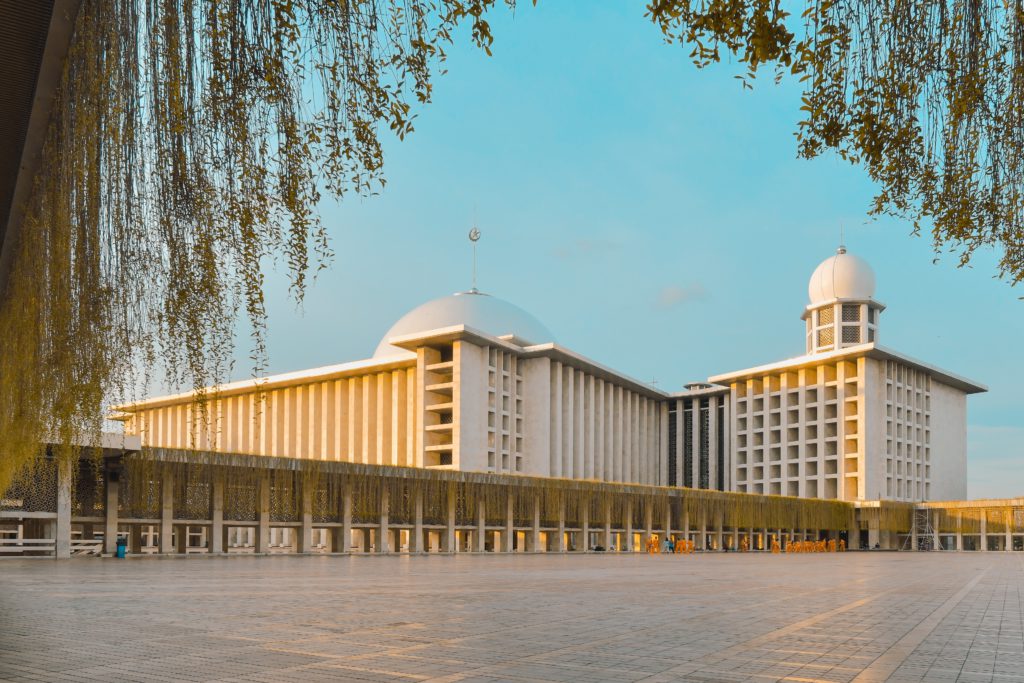Renovating a heritage worship space to reach Green targets
Indonesia’s national mosque, Istiqlal, has undergone a retrofit to significantly lower its carbon footprint, with an estimated impact of 476.22 tonnes of carbon dioxide equivalents (CO2e) per year.
The heritage building was designed in 1955 by architect Friedrich Silaban, then began its construction in 1961 until full completion in 1978. The most recent refurbishment was conducted in 2019-2020 to fit the mosque with environmentally friendly features, including water and energy efficiency to serve a full capacity of around 200,000 users. This renovation earned Istiqlal a final Excellence in Design for Greater Efficiencies (EDGE) certification on 6 April 2022, making it the first place of worship in the world to achieve the acknowledgement.
The original 1955 design had ceilings that spanned five storeys tall and wide openings that promoted natural ventilation, but as the technology became available, the worship areas came to be fitted with air-conditioning (AC). However, it was not properly implemented: the AC intake units were placed along the corridors, which meant that it was sucking in hot air into the spaces. This was corrected in the recent renovation, alongside replacing the units with energy-efficient VRF (variable refrigerant flow) models and installing fans that blended in with the mosque’s pillars.
Along with the use of reflective paint for the roof and external walls, energy-saving lighting in internal and external spaces, smart energy meters and solar photovoltaics that cover more than 13 per cent of its electricity consumption, Istiqlal Mosque is expected to see 23 per cent in energy savings.
Water is an important consideration, due to being used for the Muslim ritual of ablution (wudhu) that must be conducted before prayer.The renovation replaced existing taps with low-flow faucets that are almost four times more efficient, while grey water will be treated and recycled for landscaping use. Other measures are implemented to achieve zero run-off and ensure water quality in the long term, including installing retention wells in addition to the existing retention pond. The overall water consumption will be reduced by as much as 36 per cent.
The environmentally friendly renovation was carried out through a partnership between Istiqlal Mosque Management Agency (BPMI), Green Building Council of Indonesia (GBC Indonesia) and Indonesia’s Ministry of Public Work and Housing with International Finance Corporation (IFC), a member of the World Bank Group. Istiqlal Mosque is currently undergoing an additional Greenship assessment from GBC Indonesia and has received the Ecomasjid predicate that was initiated by the Council of Indonesian Ulama, setting an example for the uptake of Green worship buildings in Indonesia and elsewhere.


